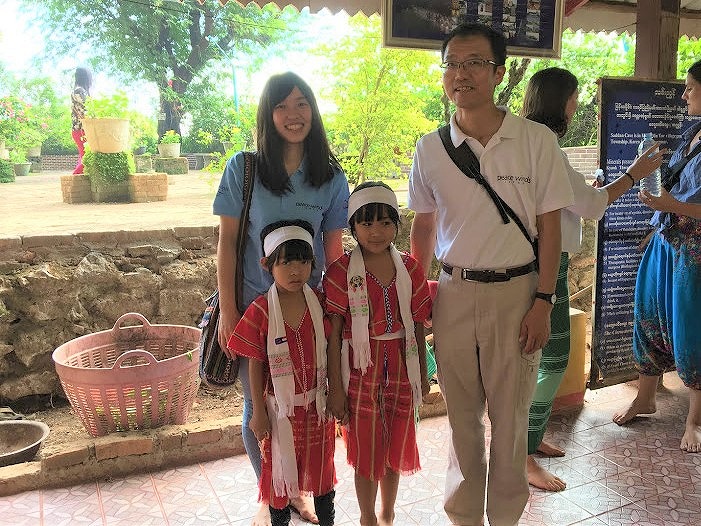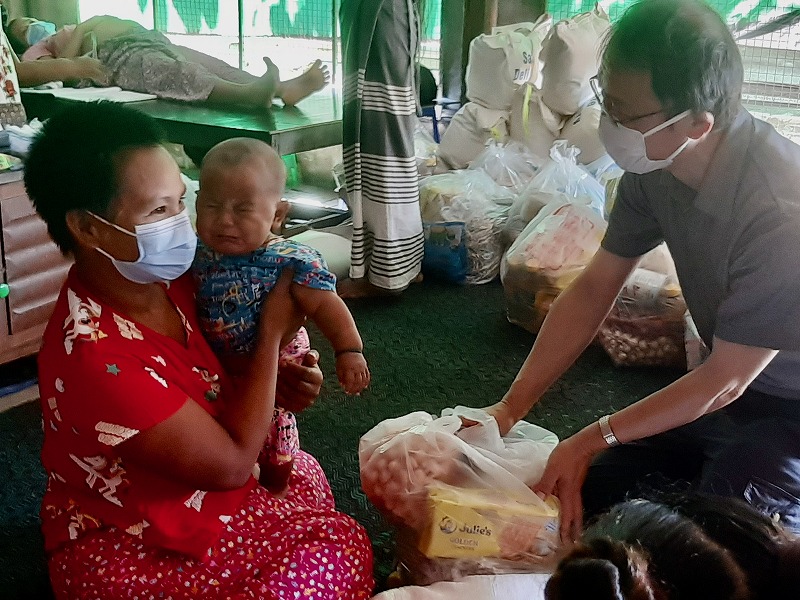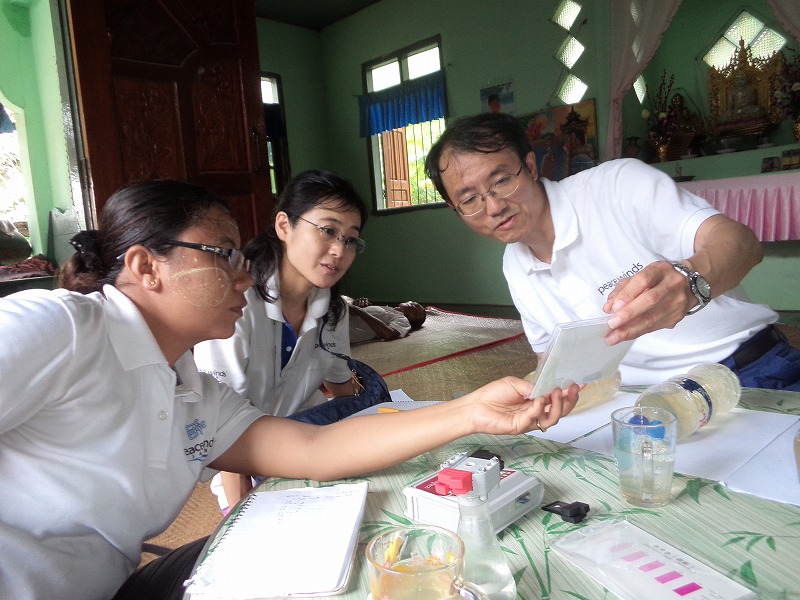Three Years Since the Coup: Why We Shouldn’t Forget About Myanmar
On February 1, Myanmar marked three years since the military coup which led to a state of emergency and serious repercussions for civilians. Fighting continues between government forces, ethnic minorities, and pro-democracy armed groups. Meanwhile, many citizens do not have sufficient access to food and medical care.
Yasufumi Tsukamura is a Peace Winds employee who has worked on Myanmar affairs since 1993. Although Mr. Tsukamura now works from Peace Winds’ headquarters in Japan, he was stationed in Myanmar for several years and recently went back to visit. We spoke to him about why it’s important not to forget about what’s happening there.
It’s easy to forget about Myanmar amid all the news about other crises, such as in Gaza and Ukraine, but how are things going lately?
Mr. Tsukamura: Since the coup, I have visited Myanmar several times, and I was just there in December. As military conflicts continue around the country and the state of emergency has been extended, about 4 to 5 million people, nearly 10% of the population, are still living as evacuees both inside and outside the country. I have been involved with Myanmar for a long time, and this seems to me like a unique situation that we have never seen before. In Mae Sot, a town on the border in Thailand, the influx of refugees has continued to the point that two-thirds of the population is from Myanmar, and the number of students in schools has just about doubled, making it difficult to accommodate them.
Since the coup, what kind of support programs has Peace Winds been implementing?
Mr. Tsukamura: In cooperation with our local partners, we have been working in ethnic minority areas to provide food assistance, essential supplies, and medical care for pregnant and nursing women. In the spring, we will begin a new round of food distribution and help deliver medicines to hospitals. We are continuing to provide the best care we can while ensuring the safety of our staff amid the ongoing violence. There are so many people who need our help.
What was Myanmar like when you were first stationed there?
Mr. Tsukamura: In 1995, my family and I were stationed in Bagan, a World Heritage city in central Myanmar, when I worked for another NGO. We were in an area with a dry climate and insufficient water supply, so I worked on a project to build water facilities. Bagan is home to a simple but strong community with deep-rooted family values, making it a wonderful place to live. Ever since my children were small, the community gave me a lot of support, and I learned a lot from them.
People feel like Myanmar is a faraway country from us in Japan.
Mr. Tsukamura: That’s not the case. In fact, many people from Myanmar live in Japan, and the number has increased since the coup. In the small town in Shimane Prefecture where I currently live, many women in their 20s have come from Myanmar to work as caregivers, and about a dozen of them live right next to my house. They are caring for our community’s elderly on our behalf. The Myanmar people are our close neighbors.
As neighbors, I think it’s important for us in Japan to know what’s happening in Myanmar, but why do you think it’s important?
Mr. Tsukamura: First and foremost, the people of Myanmar have high expectations for the Japanese people and our government, believing that we will provide support. And second, since the people of Myanmar are unable to speak out for themselves, we have to speak out on their behalf. Right now in Myanmar, even if you wanted to call for democracy or protest the military regime, you can’t speak freely out of fear for the safety of yourself and your family. Even people who resist by not going to work or peacefully striking risk being detained. I think it’s important to be aware that there are people who have no choice but to be silent, and that we should do whatever we can on their behalf. Although there’s not much I can do, I’m going to continue working as hard as I can for the people of Myanmar until they can live freely.


